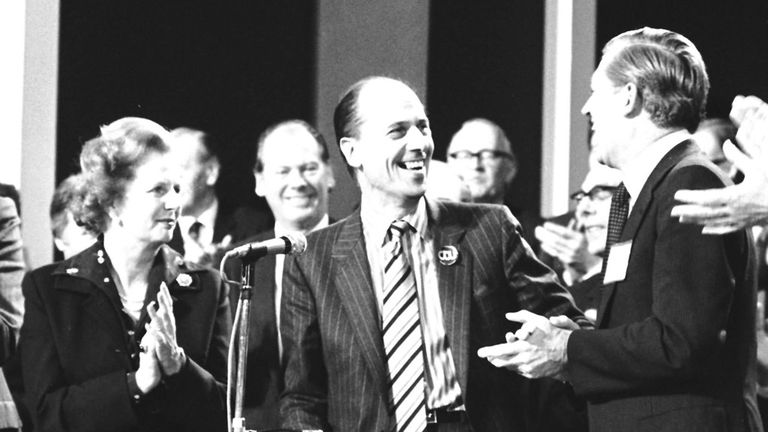
Norman Tebbit: A Relentless Fighter and Voice of Thatcherism Dies at 94
It’s the end of an era—Norman Tebbit, one of the fiercest voices in British Conservative politics and a key ally of Margaret Thatcher, has passed away peacefully at the age of 94. For anyone who has followed British politics over the past half-century, his name is synonymous with a certain kind of blunt, unapologetic conviction. Tebbit wasn’t just a minister or a party chairman; he was a symbol of Thatcherism, of the grit and resolve that defined one of the most transformative decades in modern British history.
Born in 1931 in Ponders End, North London, Tebbit didn’t come from privilege. He left school at 16 and started as a journalist at the Financial Times . He learned to fly planes during his National Service with the RAF and later flew commercially for British Overseas Airways Corporation. But politics pulled him in, and in 1970 he was elected to Parliament. By the 1980s, he was at the very heart of Thatcher’s revolution, holding senior posts at Employment, Trade, and Industry, and serving as Chairman of the Conservative Party.
Also Read:- Mbappe Faces PSG in a Blockbuster Club World Cup Semifinal Showdown
- Joao Pedro Steals the Show as Chelsea Storm into Club World Cup Final
His work ethic and loyalty to Thatcher’s cause earned him a reputation for being uncompromising. He championed sweeping legislation that targeted union power, famously saying that when his father was unemployed in the 1930s, he didn’t riot—he “got on his bike and looked for work.” That single remark became one of the most quoted—and controversial—moments in post-war British political rhetoric.
But Tebbit’s political life was also marked by tragedy. In 1984, the IRA bombed the Grand Hotel in Brighton during the Tory Party conference. The explosion killed five and injured dozens more. Tebbit himself was pulled from the rubble with serious injuries, and his wife Margaret was left permanently disabled. Despite his grief and physical suffering, Tebbit showed immense resilience. He returned to public life with the same sharp edge, though many close to him say the bombing left a lasting impact.
Over the years, Tebbit remained a towering and divisive figure. He was adored by the Tory right and vilified by the left. From his infamous “cricket test” remarks about immigrant loyalty to his scorched-earth campaigning style, he never shied away from controversy. Yet even his critics often acknowledged his courage, his intellect, and his refusal to bend under pressure.
Many have paid tribute to him. Conservative leader Kemi Badenoch called him “the leading exponent of Thatcherism” and praised his courage in the face of terror. David Cameron remembered him as “a man of great conviction and profound self-belief,” while even Labour’s Keir Starmer acknowledged Tebbit’s “great strength” during dark moments in British history.
Norman Tebbit was not a polished figure, nor was he universally loved. But what he was—absolutely and unapologetically—was real. He embodied a shift in British politics, proving that a man from a working-class background could rise to the highest ranks of the Conservative establishment and change the direction of the nation. Whether you agreed with him or not, there’s no denying that he left a mark.
Rest in peace, Lord Tebbit. You fought your battles with unrelenting force, and your legacy—like your beliefs—will not be forgotten.
Read More:

0 Comments